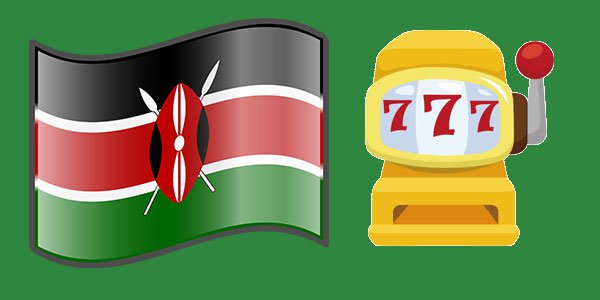Booming Kenyan Gambling Industry
Posted: January 27, 2016
Updated: June 5, 2017

Experts say that the tax revenues from the Kenyan gambling industry could be considerably higher with a clearer framework.
Kenyan gambling news report about a blooming gaming industry, however the annual gambling tax revenues point to the opposite. After such contradictions, the Kenyan gambling industry received lots of attention lately. The Kenyan government introduced numerous amendments to the Income Tax Act in order to catch up. One of these, the withholding tax, concerns individual gambling wins. Since its imposition, each Kenyan resident is obliged to pay a 20% on all of his lottery and gambling wins. However, the implementation of this tax was not successful so far.
The Kenyan gambling legislation was established in 1966. Ever since, it contributed with a considerate amount of money to the developing country’s budget. Capital FM Kenya says that the gross revenues of the Kenyan gambling industry are “estimated to be in the region of SH 3 billion,” adding that the industry’s steady growth might continue over the coming years, up to SH 5 billion annually. However, when it comes to taxation the situation is not as positive as it could be.
No clear framework for the regulator of the Kenyan gambling industry
Concerning the withholding tax, casino operators say that “individual winners go home with all their money,” without paying taxes. “If you win SH 1 million in a gaming bet, you will go home with your money intact.” Gamblers acknowledge the new Kenyan gambling laws, but they don’t deny the casinos’ claims. The 46 licensed Kenyan “casinos however pay the amount on a daily basis to Kenya Revenue Authority (KRA) officers on behalf of their clients,” added a senior official of an unnamed casino. Without doing so, they would be fined by the KRA.
Kenyan gambling laws prescribe that casinos should deduct the withholding tax from the player’s earnings, collect the player’s personal details and give a certificate to the player. However, operators say that this method is impractical on many levels. First of all, this could have an adverse effect on their business. Second, they follow these steps with tourists since they don’t have a Kenyan Personal Identification Number. “It is impossible to deduct money from them without exposing the association’s members to multiplicity of law suits for special damages,” said David Mashi, CEO of Association of Gaming Operators in Kenya.
“This is one industry which is a sleeping giant,” said Paul Wambua Musili, chairman of the Betting Control and Licensing Board (BLCB). “The gaming inspectors out there are compromised, government is not getting its fair share of revenue, and the good course money is also not collected as stipulated by the law,” he added, outlining the most problematic aspects. Musili also highlighted that the BLCB has no clear legislative framework to rely on. The BLCB asks for the elimination of the withholding tax and the introduction of a gaming levy, targeting the operators’ gross revenues. This way the government could get its fair share of gambling revenue.
















